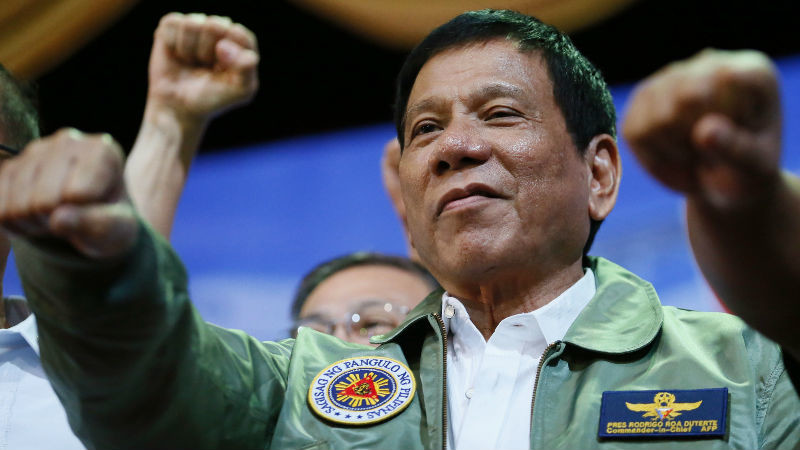Different from other presidents
At a forum hosted by the Asian Media Information and Communication Center last Friday, I had a chance to paint a picture of the conditions journalists labor under when covering President Duterte. With Marites Vitug’s own take, it was meant to prompt discussion:
President Duterte is an unusual subject, different from most other presidents, in many ways. A large part of the challenge of covering him can be explained by these differences. Let me cite four related pairs of unusual.
He was a truly reluctant candidate. This helps us understand why, six months after the election, he can still startle with unexpected talk about his readiness to give up his post. He is the only president who speaks of resigning if certain policies are already set in place, who talks of sitting down with alleged coup plotters, who pledges to leave the presidency if his critics can meet certain (admittedly impossible) requirements.
At the same time, he is the one president who is fully committed to use the full range of presidential powers, the one who casually mentions imposing martial law or suspending the privilege of the writ of habeas corpus, who threatens to marshall legislative consensus to abolish an office created by law, who readily takes to the bully pulpit to name suspect oligarchs or suspected criminals.
He is the most emotional of our presidents. He cried openly at his mother’s tomb when he was elected; he often says what is exactly on his mind and gives in to anger. Seeing his BFF Bato dela Rosa weep at the Senate hearing last Wednesday, I realized that the Duterte administration may be said to practice what we can call the politics of emotion.
At the same time, he is proudly idiosyncratic and doesn’t think twice about breaking tradition or protocol. He’s held press conferences after midnight; he’s taken questions before leaving for international summits; he added six hours to his flight to Peru just to avoid a stopover in the United States.
He plays language games. As president-elect, for instance, he vowed not to conduct interviews until the end of his term. He meant the end of his term as mayor.
At the same time, he uses coarse, sometimes abusive language. He has repeatedly stated that he is not a statesman. He did not run for such an office, he said once. No such office exists, he said another time. Well, this may be the first legacy of the President’s. He seems to have given permission to many of us to speak with F and with P words. He did not only make possible the surreptitious burial of the remains of the dictator Ferdinand Marcos; we can make the case that the online abuse we’ve seen in the wake of the burial would not have been possible without his own example.
He talks too much. Even allies like Sen. Richard Gordon say the same thing.
At the same time, he speaks against his own self-interest. On Aug. 21, for instance, he spent the first 15 minutes of his news conference talking about what he used to do as prosecutor and as mayor: He said they used to plant evidence, to plant intrigue.
So the questions we ask, the approach we take, during coverage often revolve around these, because these are new, unusual, controversial.
Over and above these personal characteristics, the President has also set in motion potentially or actually divisive policies. I will mention only the three that, in my view, have proven to be the most controversial.
First, the killings. No other president has run for office on the promise that he would kill thousands of fellow Filipinos. In the last five months, more people have been killed in the so-called war on drugs than Marcos murdered during martial rule.
Second, the under-prepared pivot away from long-time ally the United States and toward neighborhood bully China. We all should support seeking a truly independent foreign policy, but there is no need to create enemies.
Third, the rehabilitation of the Marcoses. The burial in the Libingan ng mga Bayani, which Imee Marcos correctly said was the result of the work of the President and the Supreme Court, is a symbol. It means one thing: The Marcoses are so back.
The Duterte campaign promised that, with his election, change was coming. Whether you think the promised change is for good or for ill, I think we can all agree that change is truly here.
On Twitter: @jnery_newsstand





















